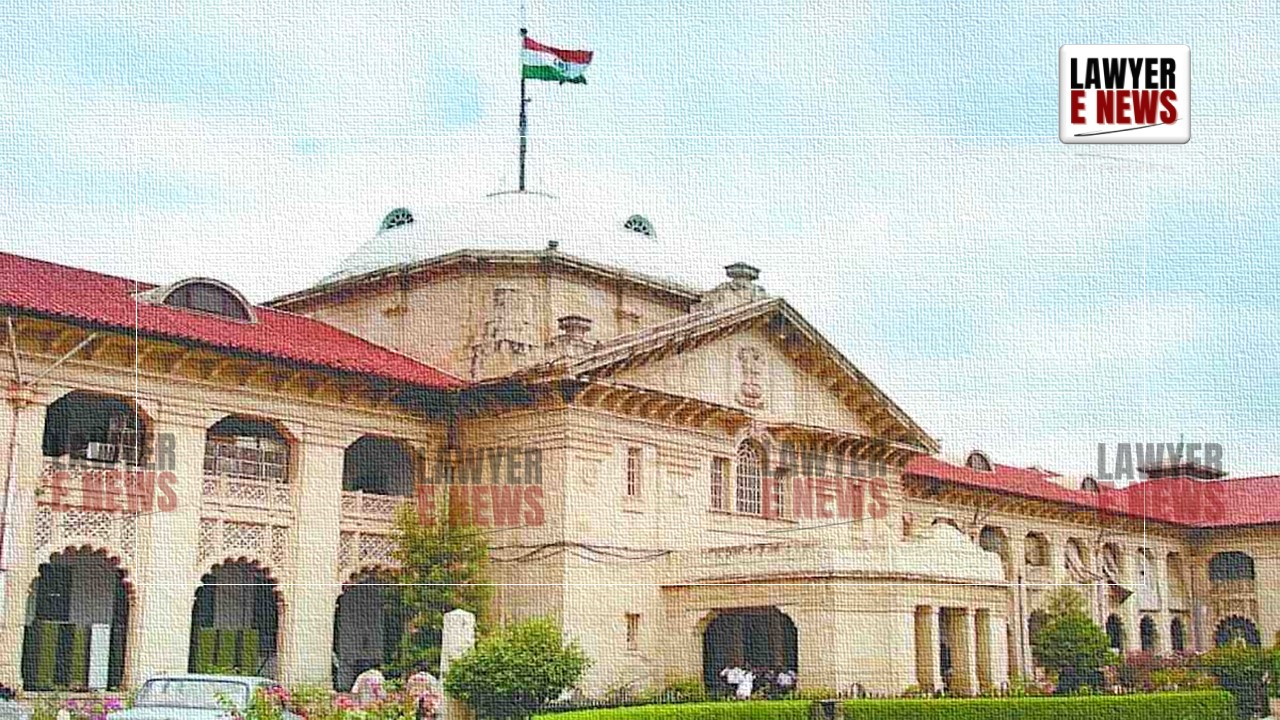Discharge Plea Rejected | Prima Facie Evidence of Illicit Relationship and Poisoning: Allahabad High Court Upholds Charges in Dowry Death
13 September 2024 9:41 PM
By: Deepak Kumar
The Allahabad High Court, on September 11, 2024, dismissed the discharge application of Viresh Kumar @ Viresh Singh, accused in the death of his wife under mysterious circumstances. The Court upheld the charges under Section 306 of the Indian Penal Code (IPC) (abetment of suicide), rejecting his argument that the death was due to natural causes. The bench, presided over by Justice Saurabh Shyam Shamshery, also disposed of a connected application seeking to alter the charges from Section 306 IPC to Section 302 (murder) and Section 328 (causing hurt by poison).
The case stems from the discovery of the applicant’s wife’s body in a locked room at their residence. The applicant claimed he found her in a sitting posture on returning home after two days. Initial investigations, including a postmortem report and a viscera analysis, revealed traces of organo-chloro insecticide in the deceased’s vital organs, pointing towards poisoning. The deceased’s father, Neeraj Singh, lodged an FIR, accusing Viresh Kumar, his brother, and others of dowry harassment, illicit relationships, and orchestrating his daughter's death.
Viresh Kumar sought discharge under Section 227 CrPC, claiming the death resulted from myocardial infarction, citing expert reports and judgments, but the trial court rejected his plea.
The central question before the Court was whether there was sufficient prima facie evidence to sustain charges of abetment to suicide under Section 306 IPC or if the case warranted a discharge. The complainant also sought to alter the charges to Section 302 IPC, alleging it was a planned murder due to dowry demands and marital disputes.
The High Court dismissed Viresh Kumar's application, stating there was more than sufficient prima facie evidence pointing towards unnatural death due to poisoning. The Court cited various Supreme Court judgments, affirming that at the discharge stage, the trial court must evaluate whether strong suspicion of criminal activity exists. It held that the evidence, including the forensic findings of insecticide in the deceased's body, was enough to proceed with the trial for abetment of suicide under Section 306 IPC.
The Court also dismissed the complainant's plea to alter the charges to murder (Section 302 IPC), noting that the complainant had not objected during earlier proceedings. However, it allowed the trial court to reconsider charge alterations under Section 216 CrPC if new evidence emerged.
Justice Shamshery emphasized that the presence of organo-chloro insecticide in the deceased's body, combined with the applicant’s suspicious behavior, justified the framing of charges. The Court also rejected the applicant's defense that the poison could have been due to environmental exposure, stating that no evidence supported this claim.
The Court held that the evidence, including witness statements and the deceased’s condition, suggested foul play. The applicant’s defense that his wife’s death was natural due to a heart condition was insufficient to dismiss the case at this stage. It referenced multiple precedents that at the stage of discharge, only prima facie evidence needs to be examined, not the conclusive guilt of the accused.
The judgment upholds the decision of the trial court to proceed with charges under Section 306 IPC. The ruling reinforces the legal principle that strong suspicion of criminal activity, especially in dowry-related deaths, warrants a full trial rather than discharge at the preliminary stage.
Date of Decision: September 11, 2024
Viresh Kumar @ Viresh Singh v/s State of U.P. and Another




